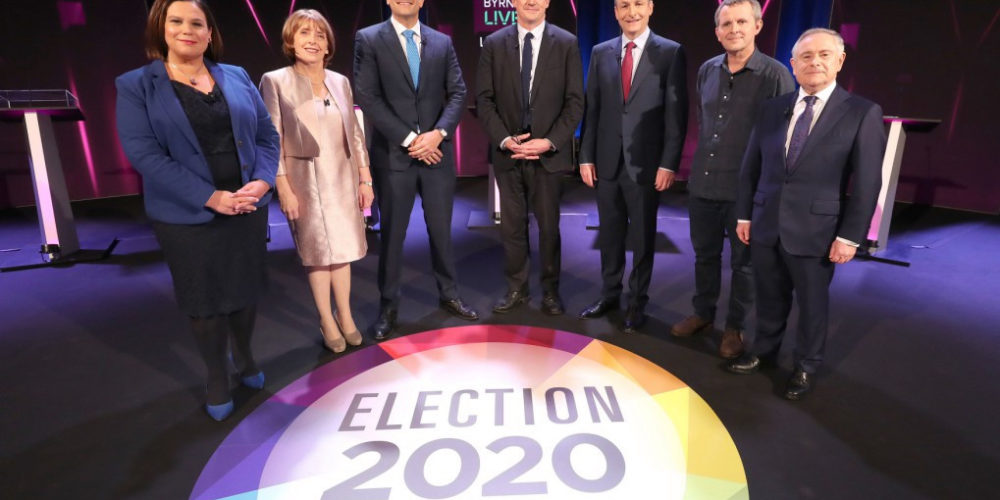Today, Saturday 8 February 2020, it's election day in Ireland. Voters are going to the polls after a tumultuous general election campaign. On this occasion we republish an article from the latest issue of Socialist Voice, the official newspaper of the Communist Party of Ireland.
There are no shortcuts
by Eugene McCartan
Elections come and go; but there are no shortcuts for what our class needs to secure.
Over the course of the general election campaign it was clear that a general feeling of bewilderment and boredom, in equal measure, was the reaction of many working families to the talking heads pontificating on television and radio in trying to interpret or reinterpret what a political party said or meant to say, or which of the politicians won with this sound-bite as against that sound-bite.
The political commentators and analysts, always eager to give their “considered opinions,” while being presented as non-partisan and objective, carefully steer the people’s understanding into safe water, offering tame solutions for the establishment.
Over the course of the election campaign, did politics get below the surface to deal in any real way with the issues facing our people daily? The questions of an overworked labour force, precarious employment, low wages, all failed to make it to the studio performances.
The same goes for the housing and homelessness crisis, never mind the impending environmental abyss that our world now stares into. While spoken about a lot, they did not address why we have such crises in the first place.
Elections within this corrupt and bankrupt political system become more and more removed from the real concerns of working people. Workers, in increasing numbers, are recognising that solutions are not to be found in the institutions that control and govern their lives. No matter who you vote for, the same economic and social policies will be pursued by whatever combination of parties forms a government.
This is the same process that is developing throughout the member-states of the European Union. There are multiple political parties but only a single economic model imposed upon the working class, from Athens to Dublin—slight variations on a single theme: the primacy of the markets and market forces and securing the interests of big business, the interests of capital, i.e. money and those who own and control it. All other matters are secondary to securing those interests.
Fine Gael, Fianna Fáil, the Green Party and Labour Party peddle the same line. The system is the best there is; all we need to do is tweak it a little here and there. All play for the “hard-pressed middle”—in other words, the professional classes, where the greatest number of regular voters feel they have a stake in the system.
The “coping classes,” who have their own private health insurance, whose children attend well-financed schools, who rarely if ever use public transport, may be be feeling a bit of a squeeze in regard to charges for private child care, or rage against the universal social charge. The auction politics so evident was for securing these people’s votes.
Meanwhile on the formerly self-styled “revolutionary left,” Solidarity and People Before Profit could not do or say anything that could distinguish them from old-fashioned left-reformism and opportunism. All the parties proclaiming themselves to be on the left offered nothing more than a reheated system, a better form of capitalism, tweaking spending here and not there.
If working people want real, meaningful change, then electoralism is a dead end. At this stage of the struggle for radical change, working people need to realise that their concerns will only gather dust in the corridors of Dáil Éireann without their own independent political struggles within communities, within their places of work.
We need to build and develop our own strength and organisation outside these mechanisms of control. This is an ideological struggle, coupled with building resistance wherever and whenever we can.
The future belongs to us, but only if we organise to bring it about. It will not be given to us on a plate.
Source: socialistvoice.ie


